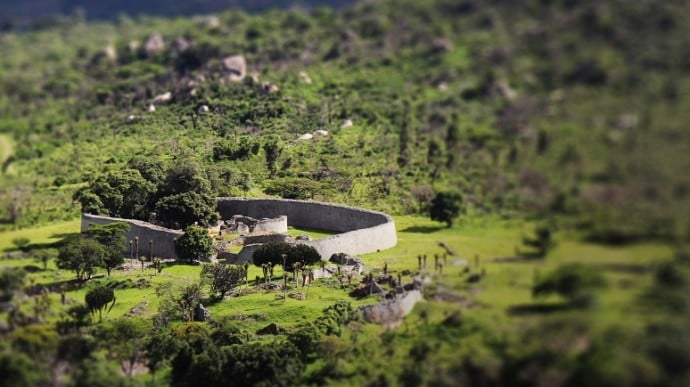Global warming is causing climate patterns to change – think higher temperatures and decreased rainfall. In fact, climatic models suggest that temperatures may rise by between 0.3°C and 4.8°C!
Changes such as these are leading to a rise in the proportion of areas under threat of desertification (when land becomes increasingly arid), says Dr Thulani Makhalanyane, member of the Centre for Microbial Ecology and Genomics (CMEG) and lecturer in the Department of Genetics. Yet we know very little about the impacts of desertification on global ecosystems.
To find answers, Dr Makhalanyane looks at the microorganisms that thrive in the mostly frozen Antarctic and blistering Namib’s soil. These extreme desert ecosystems have no or limited rainfall and plant growth, respectively. When it comes to soil structure and fertility – important factors for sustainable agriculture – soil microorganisms play a vital role.
Dr Makhalanyane’s work aims to understand the role of these active microbial populations in shaping the soil environment, and how environmental factors drive their structure and function. Learning about how they have adapted to arid environments, can give us clues to understanding our world, especially how climate change may affect it and the changes we would need to make to ensure our food security.
Antarctic microbial communities are vital in understanding how changing conditions may ultimately affect important biogeochemical cycles, such as carbon fixation, says Dr Makhalanyane. Carbon fixation refers to the process when carbon dioxide is converted to organic compounds by living organisms in soil.
Dr Makhalanyane and the CMEG team have also started marine molecular ecology research, specifically focusing on oceans surrounding South Africa. He notes that it’s a massive undertaking, but one that will reveal even more answers to issues related to global climate change.
For more information, contact Dr Makhalanyane on: [email protected]
For an overview of his research: https://www.researchgate.net/profile/Thulani_Makhalanyan
Prof Thulani Makhalanyane
January 1, 2015

Professor Thulani Makhalanyane graduated from the University of the Western Cape with an MSc (cum laude) (2009) and a PhD (2013).
After completing his doctoral studies, he moved to the University of Pretoria (UP) where his research has focused almost entirely on understanding the ecology of microbial communities in extreme environments. These habitats include soil microbial communities in the Antarctic Dry Valleys, the Namib Desert and increasingly in South African regions such as the Southern Ocean.
In 2014, after a period as a postdoctoral fellow, Prof Makhalanyane was appointed as a lecturer before being promoted to associate professor in 2019. He holds the DSI/NRF SARChI Chair in Marine Microbiomics and continues to undertake research at UP. He supervises 14 postgraduate students at master’s and doctorate levels.
Prof Makhalanyane has generated over 60 publications since 2012 (H index 25), and his work has been presented at several international meetings, including the International Symposium on Microbial Ecology. He serves on national and international panels, representing South Africa in bilateral discussions. He also serves on several editorial boards and is senior editor at three journals: the ISME Journal, mSystems and Communications Biology.
Prof Makhalanyane was elected to the board of the ISME Society in October 2018 and is a member of the Executive Advisory Board. He is a Fulbright Scholar and has received several awards, including the TW-Kambule-NSTF Award (Emerging Researcher), and was given a prestigious NRF P rating.
 Story
Story
This edition is curated around the concept of One Health, in which the University of Pretoria plays a leading role globally, and is based on our research expertise in the various disciplines across healthcare for people, the environment and animals.
 Story
Story
Highly sophisticated water management techniques of ancient civilisations demonstrate the ingenuity of inhabitants who lived with limited water. It appears we need to look to the past to ensure a stable water supply in the future.
 Story
Story
A new study by researchers at the University of Pretoria (UP) and the University of Adelaide in Australia has revealed the real function of the giraffe’s long legs ¬– to reduce blood pressure.
Copyright © University of Pretoria 2025. All rights reserved.
Get Social With Us
Download the UP Mobile App